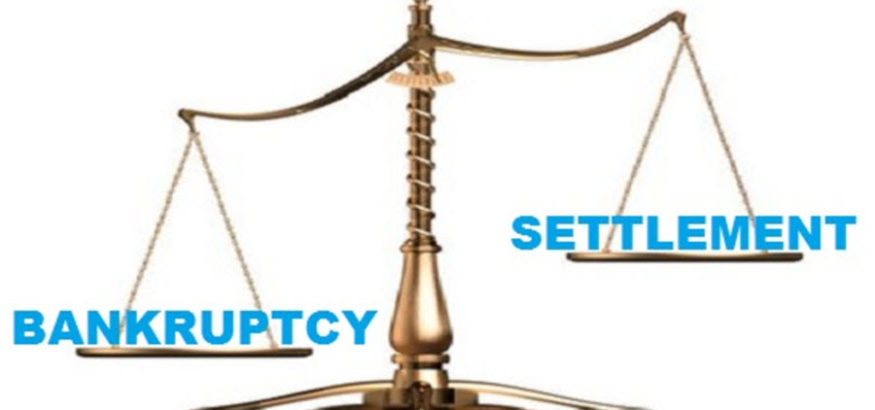What is Debt Settlement and Do I Qualify?
If you have a large debt with one or multiple creditors and are struggling to make the needed payments, then debt settlement may seem like an enticing option. However, many people misunderstand the settlement process and aren’t fully aware of the potential repercussions. Before you go down the debt settlement road, here’s what you need to know.
How Does Debt Settlement Work?
Debt settlement is first and foremost a negotiation. You, or a representative negotiating on your behalf, contacts the creditor and makes a settlement offer. This offer involves offering them a substantial lump sum payment in exchange for “forgiving” the rest of the debt.
Since these are based on lump sum payments, you must have the money available to fulfill the amount you offer within an agreed upon timeframe. Often, you’ll have to go back and forth with the creditor to find an acceptable amount and then wait to receive formal documents outlining their acceptance of the offer. Once that is received, the full payment is required.
Do You Need to Work with a Debt Settlement Company?
Most people have heard the commercials for debt settlement companies that promise to help you resolve your debts. However, these services don’t come cheap, and you may be encouraged to stop making payments while they try to negotiate. This means additional charges, like late fees, interest, and other penalties, are racking up and they may not be successful in the end.
Additionally, these companies don’t work for free. The fee structures can vary and may involve you paying them a certain percentage of the money they save you. Often, the costs are high, so consider this carefully before proceeding. Also, some of these companies take months or even years to finish the process, leaving you with a damaged credit report and years of late fees and penalties added to your debt total (if you stop paying the debts).
Ultimately, you don’t have to work with a debt settlement company to work with the creditor. You can handle the entire process on your own and potentially save yourself hundreds of dollars or more in costly fees. Get more detail on debt settlement here.
What are the Drawbacks?
While the benefit is fairly clear (you get to settle a debt for less than you owe), the drawbacks are a little less obvious. First, debt settlements will have a negative impact on your credit score. The fact you only paid part of what is owed, even if the company agrees to let you do so, will be noted on your credit report and does harm your score. In fact, a debt settlement remains on your credit report for seven years, so the pain can follow you for some time.
There are also tax implications to debt settlement. Any forgiven amount can be considered to be income by the IRS, raising your tax obligations when you file for that year.
Finally, even if you make a substantial offer, a creditor can refuse to settle. In these cases, you are still saddled with the debt and, if you stopped making payments, now owe additional interest and fees that could have been otherwise avoided.
Often, debt settlement isn’t the safest choice when compared to other options like debt management plans. So, before you decide to settle, explore other programs that may have strong benefits with fewer drawbacks.
Learn about additional debt reduction tactics and services here.

